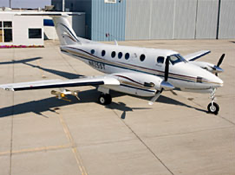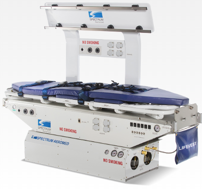Managing Through Crisis
Every company goes through good times and bad times. With COVID-19 forcing international and domestic commerce to a standstill, the world is in a crisis, and many are wondering how to navigate in these uncharted waters. What advice to local business leaders have from their experiences managing through crises overseas?
President & CEO
Amity Technology
Howard Dahl has been through more than a few crises. He is a founder of Amity Technology, a leading Fargo, North Dakota-based manufacturer of agricultural equipment. In 1998, Dahl had to deal with a rapid devaluation of the Russian ruble: “When the ruble crashed, it was devastating for our company. If someone owed us 100,000 rubles, they now owed us 400,000 rubles overnight.” Amity Technology had to write off accounts and lay off employees to deal with the cyclical agriculture industry. “There was nothing we could really do to increase revenue, so it was a tough time,” said Dahl. Since then, Amity Technology has made it a focus to have healthy balance sheets to ensure they can manage downturns in the cyclical agricultural industry, “If you do exporting with all its inherent volatility, you need a healthy balance sheet or some sort of insurance coverage for these kinds of risks,” stated Dahl. An option that Dahl shared is to have credit insurance, such as Export-Import Bank or Euler Hermes, or the US International Development Finance Corporation (formerly OPIC) also insures overseas operations.
Executive VP
Weather Mod Inc.
Jim Sweeney, Executive Vice President of Weather Modification Inc., also experienced currency issues abroad. The company does consultation and other services for modifying the weather primarily through cloud seeding, in which an inert chemical is put in the sky that can induce rainfall.
aircraft used in weather modification
In the early 2000s, Argentina suffered a depression that forced the company to pull out of Northwest Argentina, where its service was helping grape growers reduce damage from hail. Though they had a contract with the Argentine government, political instability and currency devaluation forced a shut-down in operations. “I loved working there, the people, culture, and climate were amazing” said Sweeney. Sweeney remarked that sometimes, fortune can simply be against you. He noted that the connections he and others from Weather Mod built in Argentina have still endured, however. Because of the work they have done, a family in the Mendoza wine region still ships some of their own wine to Fargo as a gesture of gratitude (called Famiglia Meschini) that can be found in local stores.
medical equipment
Matthew Christenson is all too familiar with crisis. He is VP Account Executive of Spectrum Aeromed, a manufacturer of air medical equipment that has worked with hospitals, private operators, and military branches at home and abroad. Their business supports health care providers during time of medical crisis, so their business hasn’t been negatively impacted by the COVID-19 outbreak. Matthew noted “Companies should have a culture of change. Companies and employees that can work with that mindset will make lemonade out of lemons. We like lemonade.” Being nimble and flexible on the fly is the best vaccine for managing crises.
Heather Ranck, Director of the Rural Export Center, also lived through a civil war in the Democratic Republic of Congo while she was volunteering for a faith-based organization in the late 1990s. She was exporting containers of handicrafts to the United States and faced many challenges in volatile and dangerous circumstances. “The genuine resilience and positivity displayed by most Congolese I met was a real eye opener,” said Ranck. “Despite a minimally functioning government, a complete lack of infrastructure and active warfare, most people maintained a can-do attitude and the people helped each other out.” When faced with challenges, she focused on powering through, building long-term skills, trusting reliable local advisors, and advocating for good.





